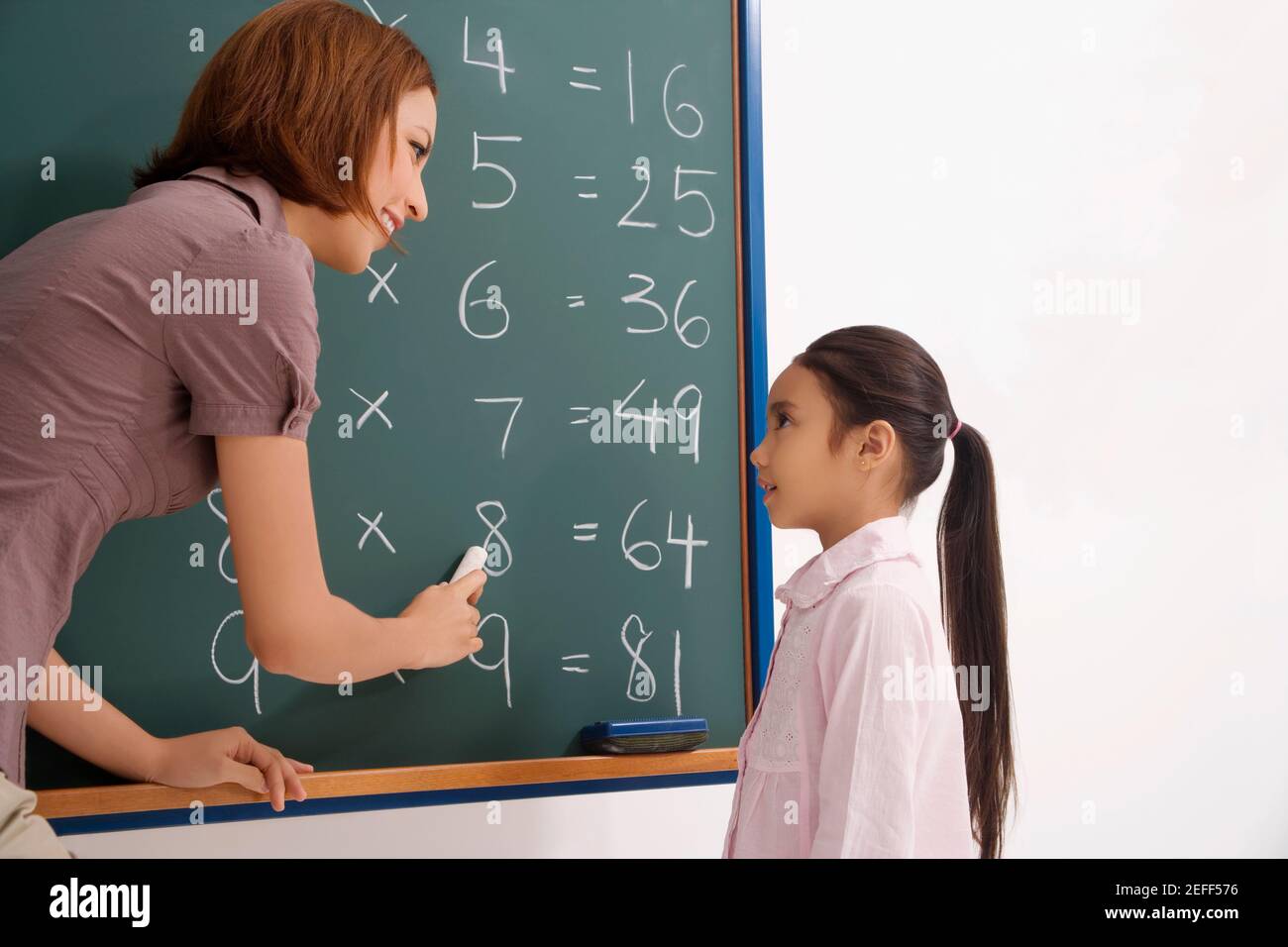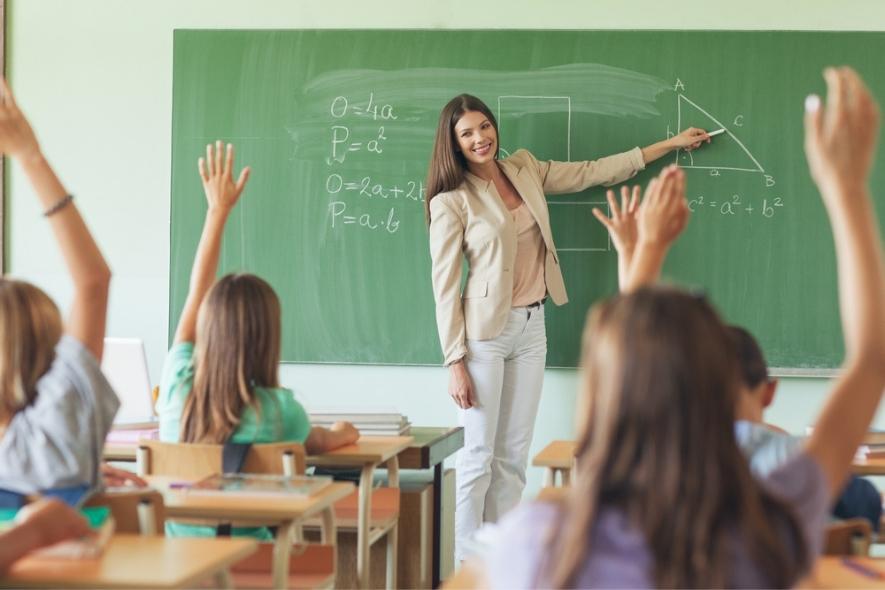Master Primary Science Concepts with Quality Tuition in Singapore
Master Primary Science Concepts with Quality Tuition in Singapore
Blog Article
Checking Out the Various Teaching Approaches in Primary Scientific Research Education And Learning Today
Inquiry-based knowing, hands-on experiments, and the combination of technology are redefining just how teachers involve young minds. Additionally, joint methods and separated instruction are being used to cater to the diverse needs of pupils, enhancing both interaction and understanding.
Inquiry-Based Understanding
Inquiry-Based Knowing (IBL) is an instructional approach that motivates students to check out clinical concepts with doubting, examination, and hands-on trial and error. This method emphasizes the function of students as active participants in their understanding, promoting important thinking and analytical abilities. By involving with real-world questions, students end up being interested and motivated, which improves their understanding of clinical concepts.
In IBL, instructors serve as facilitators, assisting pupils as they browse their queries as opposed to providing info straight. This student-centered technique permits for differentiation, accommodating different finding out speeds and designs. Trainees establish skills in developing hypotheses, developing experiments, and analyzing data, which are vital for clinical proficiency.
In addition, IBL promotes partnership among students, encouraging them to share searchings for and ideas. This collective inquiry promotes social abilities and a sense of community within the classroom. The process of inquiry motivates strength, as trainees learn to welcome failure as a stepping rock toward understanding.
Hands-On Experiments
Hands-on experiments are an important component of reliable scientific research education, enhancing the concepts of inquiry-based understanding. These experiments permit pupils to engage straight with scientific concepts, fostering a much deeper understanding via experiential understanding. By controling products and observing results, young learners can realize abstract concepts in tangible ways.
Such activities advertise important thinking and problem-solving skills, as students hypothesize end results, conduct experiments, and analyze results. This process urges them to ask concerns, improve their understanding, and establish a clinical mindset. In addition, hands-on experiments can be tailored to diverse understanding styles, making certain that all students have the chance to involve meaningfully with the content.
Furthermore, hands-on experiments usually encourage cooperation among peers, promoting team effort and interaction skills. Functioning in teams makes it possible for students to share concepts, talk about findings, and discover from each other, which boosts their general instructional experience.
Incorporating hands-on experiments into the key science curriculum not only improves the finding out setting however additionally grows a long-lasting rate of interest in scientific research. By actively joining their education and learning, students are more probable to develop a passion for clinical query that expands beyond the classroom.

Modern Technology Integration
Integrating technology right into primary science education has come to be progressively essential in fostering student engagement and improving finding out end results. Using electronic devices, such as interactive simulations, digital laboratories, and academic software application, offers students with opportunities to explore clinical principles in innovative methods. These resources facilitate a much deeper understanding of complicated topics by allowing students to picture and manipulate variables that would be not practical in a conventional class setup.
Moreover, modern technology combination motivates customized discovering experiences. Students can proceed at their own pace, taking another look at difficult concepts via multimedia sources, which cater to various discovering styles. This flexibility not just supports private growth yet likewise cultivates a sense of autonomy in students.
In addition, innovation serves as a bridge to real-world scientific research, attaching pupils with current study and expert contributions. Access to on link the internet databases and scientific journals broadens trainees' viewpoints on scientific inquiry and promotes vital assuming skills.
Collaborative Understanding
Collective understanding plays an important function in key scientific research education and learning by fostering team effort and interaction skills among trainees. This approach motivates students to collaborate, share knowledge, and participate in analytical, which enhances their understanding of scientific ideas. By getting involved in team activities, trainees find out to express their ideas, pay attention to varied point of views, and bargain remedies, every one of which are crucial abilities in both academic and real-world contexts.

Study indicates that joint knowing can bring about enhanced inspiration and interaction in scientific research subjects, as trainees discover enjoyment in shared experiences (primary science tuition Singapore). In addition, this method prepares pupils for future collective ventures, outfitting them with the skills needed for reliable teamwork in higher education and learning and professional atmospheres. Eventually, accepting joint knowing in main science education can substantially improve the learning experience and promote a deeper understanding of scientific inquiry
Distinguished Instruction

Separated direction can materialize in different means, such as varying the material, processes, or products of knowing. For circumstances, educators may utilize tiered projects that supply varying levels of complexity, permitting pupils to function at their corresponding preparedness degrees. In addition, versatile organizing methods can help with collaboration amongst pupils with various capacities, promoting peer knowing.
Assessment plays an important function in this technique, as it notifies instruction and aids teachers check this comprehend each trainee's distinct demands. Formative assessments, such as tests and observations, can guide educators in adjusting their approaches to boost learning end results. primary science tuition Singapore. Eventually, by implementing set apart instruction in primary science education, teachers can grow an extra reliable and equitable discovering environment, equipping like this all students to reach their full possibility in understanding scientific sensations
Final Thought
In recap, the diverse mentor strategies in primary scientific research education and learning, consisting of inquiry-based knowing, hands-on experiments, innovation integration, joint learning, and set apart direction, jointly add to a much more effective knowing atmosphere. These approaches advertise critical thinking, problem-solving skills, and a deeper understanding of scientific ideas. By carrying out these approaches, educators can create encouraging and interesting class that resolve the diverse demands of students, ultimately fostering a long-lasting passion in scientific research and enhancing academic achievement.
Inquiry-Based Learning (IBL) is a pedagogical strategy that urges pupils to discover clinical ideas with doubting, examination, and hands-on testing.Collective knowing plays an important function in key scientific research education and learning by cultivating team effort and communication skills amongst trainees.Research study indicates that joint understanding can lead to boosted inspiration and interaction in science topics, as pupils discover satisfaction in common experiences.In promoting an inclusive understanding atmosphere, separated guideline arises as an essential strategy to suit the diverse needs and abilities of pupils in main scientific research education. Ultimately, by executing distinguished guideline in main science education and learning, teachers can grow a more reliable and equitable discovering environment, equipping all pupils to reach their full possibility in recognizing scientific sensations.
Report this page